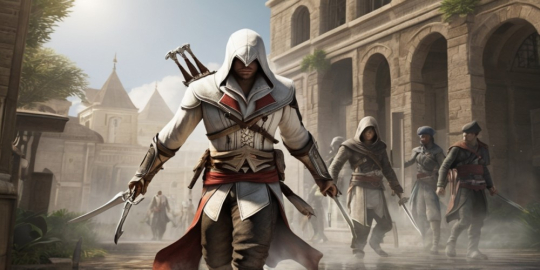
Ubisoft, the studio behind the renowned Assassin’s Creed series, has recently addressed growing concerns over the historical storytelling in its forthcoming game, Assassin’s Creed Shadows. The controversy centers around the portrayal of Yasuke, a historical African character who lived in Japan during the Sengoku period. While his precise role and status remain subjects of academic debate, Ubisoft has chosen to represent Yasuke as a full-fledged samurai within their game’s narrative. Fans and critics alike have expressed differing opinions about this creative decision, prompting Ubisoft to break its silence and clarify its stance on the matter.
Ubisoft pointed out on social media that their intention with Assassin’s Creed is to blend historical facts with elements of fantasy to create an engaging experience. The depiction of Yasuke as a samurai, despite ongoing scholarly debates, illustrates the company’s willingness to take creative license. Ubisoft maintains that it carefully wove Yasuke’s identity into the game’s storyline, aiming to deliver an immersive, albeit fictional, portrayal of Feudal Japan. Additionally, the game features another main character, Naoe, a Japanese shinobi, reinforcing the studio's commitment to diversifying its characters and narratives.
The studio has emphasized that they conducted extensive research and collaborated with external consultants, historians, and their internal teams at Ubisoft Japan to ensure that the game’s representation of Japanese culture and history is both immersive and respectful. They stress that the Assassin’s Creed series is not designed to be a direct replication of history, but rather to pique players' curiosity about genuine historical eras and figures. By taking creative liberties, Ubisoft hopes to offer unique stories that still remain rooted in the broad strokes of historical contexts.
In addition to the debate over Yasuke’s samurai status, another point of contention emerged when a Japanese reenactment group noted the unauthorized use of their flag in the game’s concept art. This flag appeared prominently in physical art books included with the Collector's Edition. Acknowledging the concern, Ubisoft has taken steps to address this oversight. They have removed the flag from all digital versions of the concept art and promised to correct the art book in future editions, striving to show respect towards the representations and objects associated with Japanese cultural heritage.
Despite Ubisoft’s detailed explanations, it remains to be seen whether these initiatives will succeed in appeasing all segments of their audience. The studio has issued apologies for any distress their promotional materials may have caused within the Japanese community and urged fans not to direct their criticisms towards individual team members or external consultants. With the launch of Assassin’s Creed Shadows on November 15th, Ubisoft hopes that players will approach the game with an understanding of its intent to blend historical intrigue with imaginative gameplay, ultimately celebrating the rich, diverse history of Feudal Japan.